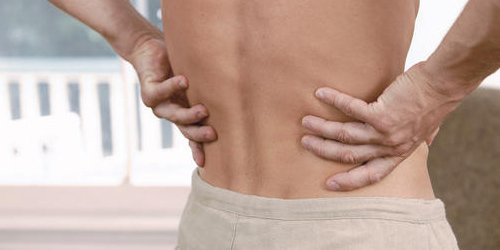All my friends are doing the 'Keto Diet' and losing weight, should I do it too?
With 10 years in this industry and a Human Movement Science degree, I still cant understand. This is all I hear these days, Keto this and Keto that, and my question is, what is the Keto Diet and what does Keto mean. How about we all understand what is is before making any judgement and whether is actually works to lose weight for long term results.
So lets first understand what Keto or Ketosis actually is. Ketosis is the word to describe the process of converting fat back into glucose, from a lack of carbohydrate. Glucose is then used within the muscles to produce energy.
Ok so what does the Keto Diet involve?
Ketosis is a normal metabolic process. When the body does not have enough glucose for energy, it burns stored fats instead; this results in a build-up of acids called ketones within the body.
Some people encourage ketosis by following a diet called the ketogenic or low-carb diet. The aim of the diet is to try and burn unwanted fat by forcing the body to rely on fat for energy, rather than carbohydrates.
Ketosis is also commonly observed in patients with diabetes, as the process can occur if the body does not have enough insulin or is not using insulin correctly.
Problems associated with extreme levels of ketosis are more likely to develop in patients with type 1 diabetes compared with type 2 diabetes patients.
- Ketosis occurs when the body does not have sufficient access to its primary fuel source, glucose.
- Ketosis describes a condition where fat stores are broken down to produce energy, which also produces ketones, a type of acid.
- As ketone levels rise, the acidity of the blood also increases, leading to ketoacidosis, a serious condition that can prove fatal.
- People with type 1 diabetes are more likely to develop ketoacidosis, for which emergency medical treatment is required to avoid or treat diabetic coma.
- Some people follow a ketogenic (low-carb) diet to try to lose weight by forcing the body to burn fat stores.
What is ketosis?
In normal circumstances, the body's cells use glucose as their primary form of energy. Glucose is typically derived from dietary carbohydrates, including:
- sugar - such as fruits and milk or yogurt
- starchy foods - such as bread and pasta
The body breaks these down into simple sugars. Glucose can either be used to fuel the body or be stored in the liver and muscles as glycogen.
If there is not enough glucose available to meet energy demands, the body will adopt an alternative strategy in order to meet those needs. Specifically, the body begins to break down fat stores to provide glucose from triglycerides.
Ketones are a by-product of this process.
Ketones are acids that build up in the blood and are eliminated in urine. In small amounts, they serve to indicate that the body is breaking down fat, but high levels of ketones can poison the body, leading to a process called ketoacidosis.
Ketosis describes the metabolic state whereby the body converts fat stores into energy, releasing ketones in the process.
Diet

Due to the fact that ketosis breaks down fat stored within the body, some diets aim to create this metabolic state so as to facilitate weight loss.
Ketosis diets are also referred to as:
- ketogenic diets
- keto diets
- low-carbohydrate diets
The diet itself can be regarded as a high-fat diet, with around 75 percent of calories derived from fats. In contrast, around 20 percent and 5 percent of calories are gained from proteins and carbohydrates, respectively.
Adhering to the ketogenic diet can lead to short-term weight loss. A study conducted in 2008 and published in the American Journal of Clinical Nutrition found that obese men following a ketogenic diet for 4 weeks lost an average of 12 pounds during this time.
The participants were able to consume fewer calories without feeling hungry while following the diet.
Is ketosis healthy?
The ketogenic diet could have a healthful effect on serious health conditions such as:
- cardiovascular disease
- diabetes
- metabolic syndrome
It may also improve levels of HDL cholesterol (high-density lipoproteins, also known as "good" cholesterol) better than other moderate carbohydrate diets.
These health benefits could be due to the loss of excess weight and eating of healthier foods, rather than a reduction in carbohydrates.
The ketogenic diet has also been used under medical supervision to reduce seizures in children with epilepsy who do not respond to other forms of treatment. Some studies have suggested that the diet could also benefit adults with epilepsy, although more research is required to confirm these findings.
However, longer-term adherence to the ketogenic diet does not appear to yield great benefit.
The American Heart Association (AHA), American College of Cardiology, and the Obesity Society have concluded that there is not enough evidence to suggest that low-carbohydrate diets such as the ketogenic diet provide health benefits to the heart.
Other conditions are also being studied to see if a ketogenic diet might be beneficial; these include:
- metabolic syndrome
- Alzheimer's disease
- acne
- cancer
- polycystic ovary disease (PCOS)
- Lou Gehrig's disease
Diabetes
In diabetic patients, ketosis can occur due to the body not having enough insulin to process the glucose in the body. The presence of ketones in the urine is an indicator that a patient's diabetes is not being controlled correctly.
Some dietitians recommend a ketogenic diet for individuals with type 2 diabetes, also known as non-insulin dependent diabetes (NIDDM). With type 2 diabetes, the body still produces some insulin but is unable to properly use the insulin to transport glucose into cells for use as fuel.
The ketogenic diet focuses on the reduction of dietary carbohydrate intake. Individuals with type 2 diabetes are recommended to reduce carbohydrate intake as carbohydrates are converted to glucose and increase blood sugar levels.
Patients with diabetes who follow a ketogenic diet need to carefully monitor their ketone levels. A serious condition called ketoacidosis can occur if these levels get too high, and although it is most prevalent in individuals with type 1 diabetes, people with type 2 diabetes can also develop ketoacidosis.
Ketoacidosis
Ketoacidosis is a condition where the levels of ketones in the body are abnormally high, poisoning the body. It is a serious and dangerous condition that can quickly develop, sometimes within the space of 24 hours.
There are several different potential triggers for ketoacidosis. It is most commonly caused by illnesses that lead to the production of higher levels of hormones that work against insulin.
It can also result from problems with insulin therapy, either through missing scheduled treatments or not being given enough insulin. Less common triggers of ketoacidosis include:
- drug abuse
- emotional trauma
- physical trauma
- stress
- surgery
Ketoacidosis most commonly occurs in people with type 1 diabetes due to the body not producing any insulin. Ketoacidosis can also occur in people with type 2 diabetes, although it is much less common.
High levels of ketones in the urine and high blood sugar levels (hyperglycemia) are signs of ketoacidosis and can be detected with kits in the home.
Early symptoms of ketoacidosis include:
- abdominal pain
- confusion and difficulty concentrating
- dry or flushed skin
- excessive thirst and dry mouth
- fruity breath
- frequent urination
- nausea and vomiting
- shortness of breath or rapid breathing
Treatment

Ketosis does not usually occur in healthy individuals that eat balanced diets and regular meals. Drastically reducing the amount of calories and carbohydrates that are consumed, exercising for extended periods of time, or being pregnant can all trigger ketosis.
In patients with diabetes, ketosis and eventually ketoacidosis may occur if insufficient insulin is used to properly manage the condition, if meals are skipped, or if an insulin reaction occurs (often while asleep).
Diabetic ketoacidosis is considered an emergency as it can lead to diabetic coma and even death. Treatment is usually administered by emergency healthcare workers, followed by hospitalization in an intensive care unit.
For diabetic patients, the following measures are commonly taken:
- Fluid replacement - to rehydrate the body and dilute the excess sugar in the blood.
- Electrolyte replacement - these are needed to help keep the heart, muscles, and nerve cells functioning correctly. Levels in the blood often drop in the absence of insulin. Electrolyte supplements are available to purchase online.
- Insulin therapy - to reverse the processes that caused the episode of ketoacidosis.
Among otherwise healthy people, following a healthy, balanced diet and exercising regularly can prevent ketosis.
Dangers of a Keto Diet

Can ketone production in the body get too high? Yes, it's called ketoacidosis. Is it likely under normal circumstances? Not at all. For most people, it's a challenge just to get into optimal ranges for ketosis. Getting into territory where you need medical intervention is just not likely.
NOTE: The main exception to ketoacidosis is type 1 diabetics - it can happen when insulin levels are severely low which is rare in someone with a normally functioning pancreas. Dangerously high ketone levels result in insulin secretion.
There are a lot of misconceptions about low carb dieting which has caused an infamous outlook on keto. There have been tons of studies published over the last 30 years that show how high amounts of fat and few carbs are beneficial.
People sometimes get keto confused with high fat, high carb diets which are terrible for the body. Of course, when you eat a lot of fatty foods that are high in sugar, you'll be getting yourself into trouble.
Have you been thinking of going on a low-fat diet? It's been shown that a ketogenic diet is both healthier and more effective than low-fat dieting.
When you eat foods high in carbohydrates and fat, your body naturally produces glucose. Carbohydrates are the easiest thing for the body to process, and therefore it will use them first - resulting in the excess fats to be stored immediately. In turn, this causes weight gain and health problems that are associated with high fat, high carbohydrate diets (NOT keto).
As a precaution, you should always check with your physician if you have any concerns about starting a keto diet. You should especially be wary if you're currently taking medications for a pre-existing condition as extra monitoring may be needed. Be careful when breastfeeding as you may need to increase carb intake.
What Happens To My Body
Your body is used to the simple routine of breaking down carbohydrates and using them as energy. Over time the body has built up an arsenal of enzymes ready for this process and only has a few enzymes for dealing with fats - mostly to store them.
All of a sudden your body has to deal with the lack of glucose and increase in fats, which means building up a new supply of enzymes. As your body becomes induced into a ketogenic state, your body will naturally use what's left of your glucose.
This means your body will be depleted of glycogen in the muscles - which can cause a lack of energy and general lethargy.

In the first week, many people report headaches, mental fogginess, dizziness, and aggravation. Most of the time, this is the result of your electrolytes being flushed out, as ketosis has a diuretic effect. Make sure you drink plenty of water and keep your sodium intake up.
In fact, you should go overboard with the salt - salt everything! Sodium will help with water retention and help replenish the electrolytes. For most, this temporary groggy feeling is the biggest danger you're going to face. It's called the "Keto Flu."
Keto Flu

Keto flu is a very common experience for new ketoers, but it often goes away after just a few days - and there are ways to minimize or even eliminate it. When transitioning to keto, you may feel some slight discomfort including fatigue, headache, nausea, cramps, etc.
There are a few reasons for the keto flu, but the two primary ones are:
- Keto is a diuretic. You tend to go to the bathroom more to urinate, which attributes to a loss of both electrolytes and water in your body. You can usually help combat this by either drinking bouillon cube or Powerade Zero and by increasing your water intake. Mainly, you want to replenish your depleted electrolytes.
- You're transitioning. Your body is equipped to process a high intake of carbs and a lower intake of fat. Your body needs to create enzymes to be able to do this. In the transitional period, the brain may run low on energy which can lead to grogginess, nausea, and headaches. If you're having a large problem with this, you can choose to reduce carb intake gradually.
After increasing water intake and replacing electrolytes, it should relieve most all symptoms of Keto Flu. For an average person that is starting a ketogenic diet, eating 20-30g of net carbs a day, the entire adaptation process will take about 4-5 days. My advice is to cut your carbs to fewer than 15g to ensure that you are well on your way into ketosis within one week. If you are experiencing any more keto flu symptoms, double check your electrolyte intake and adjust.
You may notice that if you're an avid gym goer, you lost some strength and endurance. A temporary decrease in physical performance is typical. Once your body becomes keto-adapted, your body will be able to fully utilize fat as its primary source of energy.
If you're new to keto and seem to be having an issue with the common side effects, read our guide on the keto flu and how to remedy it >
Common Side Effects on a Keto Diet
Here are a few of the most common side effects that I come across when people first start keto. Frequently the issues relate to dehydration or lack of micronutrients (vitamins) in the body. Make sure that you're drinking enough water (close to a gallon a day) and eating foods with good sources of micronutrients. To read more on micronutrients, click here >
For an overview of this section and a more in-depth guide on how to remedy different side effects of the ketogenic diet, click here >
Cramps
Cramps (and more specifically leg cramps) are a pretty common thing when starting a ketogenic diet. It's usually occurring in the morning or at night, but it's a pretty minor issue overall. It's a sign that there's a lack of minerals, specifically magnesium, in the body.
Make sure to drink plenty of fluid and eat salt on your food. Doing so can help reduce the loss of magnesium and get rid of the issue.

If the problem persists, try supplementing with a magnesium supplement >
Constipation
The most common cause of constipation is dehydration. A simple solution is to increase water intake and try to get as close to a gallon a day as possible.
Making sure vegetables have some fiber in will also usually help. Getting in some good quality fiber from non-starchy vegetables can solve this problem. Though if that's not enough, usually psyllium husk powder will work or taking a probiotic.

Heart Palpitations
When transitioning to keto, you may notice that your heart is beating both faster and harder. It's pretty standard, so don't worry about it.
If the problem persists, make sure that you're drinking plenty of fluid and eating enough salt. Typically this is sufficient to get rid of the problem right away. Though if the issue persists, it may be worth taking a potassium supplement once a day.

Reduced Physical Performance
You may see some limitations on your performance when you first begin a keto diet, but it's usually just from your body adapting to using fat. As your body shifts in using fat for energy, all of your strength and endurance will return to normal.
If you still notice problems with performance, you may see benefits from intaking carbs prior to your workout (or cycling carbs). Click here to read more >

Less Common Side Effects on a Keto Diet
These are some of the lesser common problems that I am e-mailed about on a semi-consistent basis. Many of these problems also relate to hydration and micronutrients, so make sure that you are drinking plenty of water and replenishing electrolytes.
Breastfeeding
There are mixed and matched studies on keto and breastfeeding, though nothing is well researched at the current moment. Right now it's understood that ketogenic diets are typically healthy to do while breastfeeding.
It's suggested to add in 30-50g extra carbs from fruit when breastfeeding to help the body produce milk. You may also have to add in extra calories.

Specifically, 300-500 calories worth of extra fat to help with milk production. You should always contact medical professionals for advice.
Hair Loss
If you're experiencing hair loss within five months of starting a ketogenic diet, it's most likely temporary. You can take a multivitamin and do what you normally do.
Though hair loss is very uncommon on keto, you can minimize it by making sure you're not restricting calories too far and making sure you get 8 hours of sleep a night.

Increased Cholesterol
Usually, it's a good thing! Many studies point toward cholesterol elevation when doing a low-carb, ketogenic diet.
Higher cholesterol is generally due to HDL (the good cholesterol) increasing - lowering your chance of heart disease. You may see increased triglyceride counts, but that's very common in people losing weight. These increases will subside as weight loss normalizes.

There's a small percent of people that experience raised LDL cholesterol as well. These elevated levels are usually fine - though harder to test. The dangers of LDL cholesterol come from the size and density, which are shown to be very healthy on keto. Read more on keto and cholesterol >
Gallstones
Of the few studies done on keto and gallstones, most people have either improved or cured gallstone problems. The only downside is that many reported an increase in discomfort when starting out on low-carb. If you stick with it, you should notice a vast improvement.
Another common question relating to gallstones is "Can I start keto if I have had my gallbladder removed?" The answer is yes.

You may want to increase your fat gradually to allow your system some time to get used to it.
Indigestion
Generally speaking, switching to keto gets rid of indigestion and heartburn. Keep in mind that some people see increased attacks when they're first starting out.
If you're experiencing problems, it may be best to limit the amount of fat you intake; gradually increasing the amount you have per day over a two-week period.

Keto Rash
There's no real scientific reasoning/explanation behind why some people start to itch when they start keto. There's just a handful of experiences that people have written about, and so I'm basing my answer on what I've read.
From anecdotes, it's most likely irritation from the acetone that is excreted in sweat (it's why you may experience bad breath).

It's worth looking into better clothing options for absorbing or wicking sweat from your body. It's also worth showering right after activity that causes you to sweat.
If it's a lasting issue that is causing problems, you may want to consider upping your carbs or changing exercise plans.
So is the Keto Diet worth it?
This is my question. Why are we trying to do something that goes against what our bodies are naturally built to do. no wonder we get all these side effects. And yeah what happens after you have lose the weight? what do you do? stay ont he diet for the rest of your life or do you go back to old habits and put all the weight back on?
At Vision we promote weight loss results that transform your life long term. We use exercise and eating well to put you in a state of Ketosis. A safe ketosis where you feel you can live a lifestyle that is natural the your body. Then there is only benefits. Healthier, stronger, fitter and more confident than ever. Exercise is used to make your body stronger and fitter giving you an abundance of energy, coupled with a healthy eating plan that sustains your body and supports lifes stresses. Lets do it right!
*Disclaimer: Individual results vary based on agreed goals. Click here for details.

